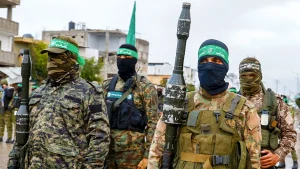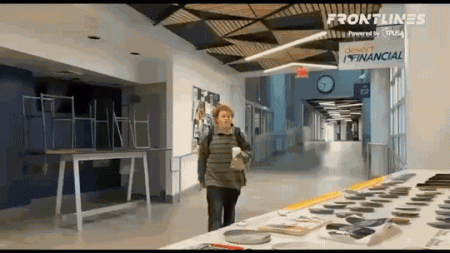Immigration Discourse: Presidential Statements on ICE Facilities
In a recent address, the president expressed serious concerns about Immigration and Customs Enforcement (ICE) facilities, describing them as “under siege from domestic terrorists.” This charged characterization reflects the increasingly polarized national conversation around immigration enforcement in America. While the president’s statement conveys urgency about threats to federal facilities, it also represents a particular framing of immigration activism that merits thoughtful consideration within our broader democratic discourse.
The president’s choice of language—specifically the terms “siege” and “domestic terrorists”—elevates what may be protests or demonstrations at ICE facilities to the level of national security threats. This framing positions those critical of immigration enforcement policies not as citizens exercising First Amendment rights, but as dangerous actors threatening federal institutions. Such characterization reflects a broader pattern in which immigration debates increasingly employ security-focused terminology, potentially obscuring the complex humanitarian, economic, and social dimensions of migration issues.
Immigration enforcement has become one of America’s most contentious policy areas, with ICE facilities serving as physical focal points for this national debate. These facilities, which detain migrants during processing and deportation proceedings, have drawn criticism from human rights organizations regarding conditions, family separation practices, and detention durations. Simultaneously, many Americans support stricter enforcement measures, viewing them as necessary for border security and immigration law integrity. The president’s statement positions the administration firmly within this latter perspective, framing enforcement facilities as institutions requiring protection rather than reform.
Context matters significantly when considering such statements. Immigration enforcement approaches have fluctuated between administrations, with policy shifts often accompanied by changes in rhetoric. The characterization of facility critics as “domestic terrorists” represents a particular escalation in official discourse that may complicate efforts at finding policy compromises. Historical perspective reminds us that immigration has consistently generated intense debate throughout American history, with today’s rhetorical battles echoing earlier periods of national anxiety around demographic change.
The president’s statement also raises important questions about the boundaries of legitimate protest versus illegal activity. Democratic societies must continuously negotiate this delicate balance—protecting both the right to dissent and the rule of law. When discussing immigration enforcement facilities, this tension becomes particularly acute. Critics argue that civil disobedience has a long and respected tradition in American social movements, while others maintain that interference with federal operations crosses an unacceptable line. The presidential characterization clearly places even passionate protest in the latter category.
Public discourse around immigration will benefit from moving beyond inflammatory characterizations toward more nuanced understandings of both enforcement challenges and humanitarian concerns. While federal facilities must operate safely and securely, democratic societies also require space for robust debate about contentious policies. The president’s statement represents one perspective in this ongoing national conversation—a conversation that ultimately requires thoughtful engagement from citizens, advocates, policymakers, and officials across the political spectrum to develop immigration approaches that reflect both American values and practical realities.








